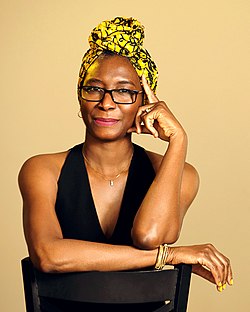| Wole Soyinka Prize for Literature in Africa | |
|---|---|
 Wole Soyinka | |
| Awarded for | Pan-African writing prize for books of any type or genre |
| Sponsored by | The Lumina Foundation |
| Country | Nigeria |
| Hosted by | The Lumina Foundation |
| Reward | $20,000 |
| First award | 2006 |
| Final award | 2018 |
| Website | theluminafoundation |
Wole Soyinka Prize for Literature in Africa was a pan-African writing prize awarded biennially [1] to the best literary work produced by an African. The $20,000 prize was established in 2005 and administered by the Lumina Foundation [2] in honour of Africa's first Nobel Laureate in Literature, Wole Soyinka. [1]
Contents
While no official statement has been made on the state of the prize, it has not been awarded since 2018. In June 2025, Nigerian businessman Olabode Opeseitan wrote an opinion piece in The Nation urging the governors of Lagos and Ogun states—where Soyinka resides and was born—to support funding for the prize. [3]

On the establishment of the prize Soyinka commented: "This is a pan African prize. We consider it to be our own Nobel prize in Africa. It unifies Africans, celebrates Africa’s great minds, brings home Africa’s best intellectuals as judges, entertainers and great communicators and leaders in their own rights. It’s a book prize I am happy and proud to be part of because of the tribute it pays to profound knowledge generation and dissemination and to Africa’s diverse cultures and personalities." [4]
The winner was chosen by an international jury of African literary figures and the prize was presented by Soyinka at an award dinner in Lagos. [5] Entries had to be written in English or French. [6] Initially any literary genre was eligible to be considered, but starting in 2014, a single genre was selected for each edition: drama in 2014, poetry in 2016, and prose in 2018. [7]
Past sponsors included the Nigerian telco Glo which supported the prize for three years. [3]
